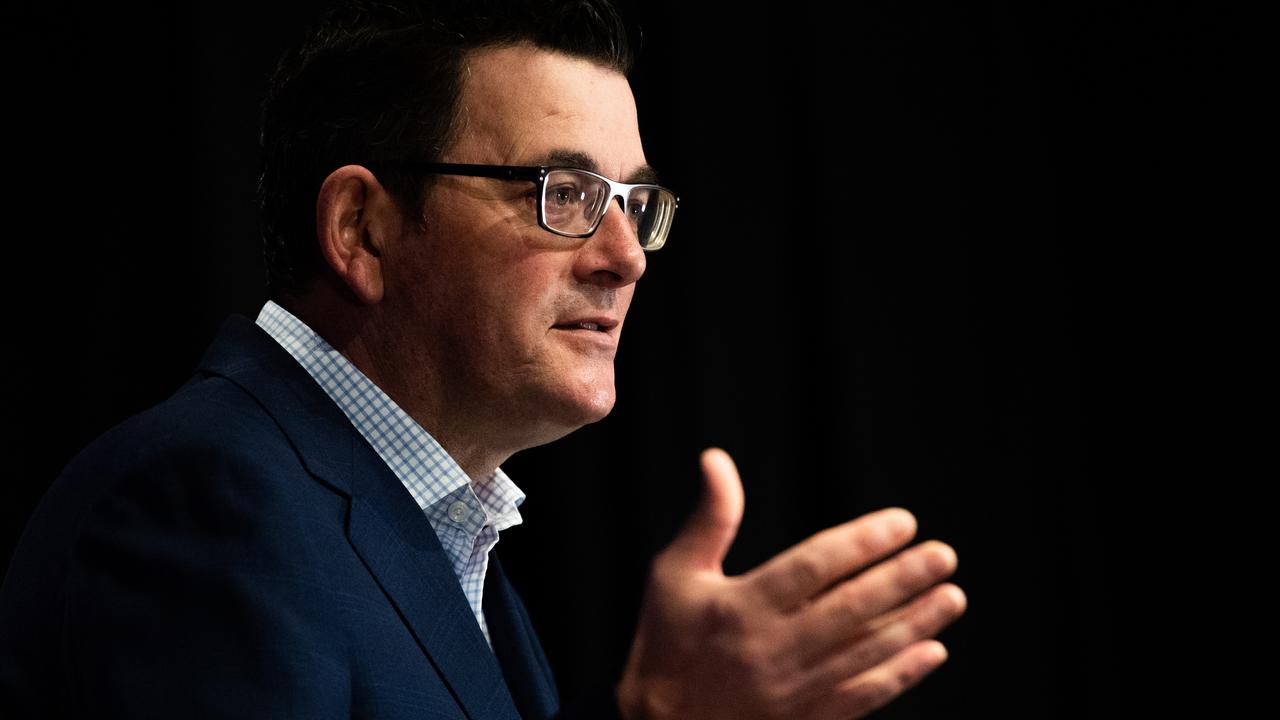Rita Panahi: Cosseted kids need to learn to deal with disappointment
IT’S hard for a child to learn to deal with disappointment or the realities of life when they are given ribbons for just showing up and cosseted against all the ills of the world, writes Rita Panahi.
Rita Panahi
Don't miss out on the headlines from Rita Panahi. Followed categories will be added to My News.
I DON’T know what’s more concerning about the revelation that primary school children were being turned away from state parliament Question Time due to fears they’ll witness inappropriate behaviour.
On the one hand it’s a sad reflection on the base level of discourse and standards of behaviour we’ve come to expect from our parliamentarians and on the other it says plenty about the way children are mollycoddled.
We’ve been so successful in protecting children from emotional distress that many don’t have any coping skills and schools are now introducing “resilience programs’’ to counter the cotton-woolling that they, often at the behest of parents, instituted.
CHILDREN TURNED AWAY FROM QUESTION TIME
MINISTER FORCED TO APOLOGISE AFTER ‘DICK’ QUIP
LESS POTTY-MOUTHED VICTORIANS PUNISHED BY POLICE

It’s one thing to shield children from unacceptable conduct but surely there’s no harm in allowing them to witness robust discussion even if it occasionally contains colourful language such as “scabs”, “imbeciles” and the rare “dickhead”. They hear much worse among their mates and favourite YouTube clips.
And yet the fear that children will be harmed by the antics of MPs during Question Time has seen parliament tour guides warn teachers about Lower House hijinks. The implementation of the new guideline follows reports that several children have been left distressed by what they’ve seen in the Legislative Assembly.
Most primary school groups are now opting out of seeing the Lower House but still visit the Upper House where standards of behaviour are more dignified, according to learned political reporters.
Colin Brooks who as Speaker of the Legislative Assembly is “the representative of the House itself in its powers, proceedings and dignity” is comfortable with the new guidelines given the rowdy behaviour of politicians.
Meanwhile, Premier Daniel Andrews who apologised two years ago for making a fat joke about a Liberal MP has called for parliamentarians to show greater respect.

“Parliament is a very robust forum and we debate, discuss and argue about very important things,” he said. “I am sure all of us can perhaps reflect on how we conduct ourselves. We always need to be mindful that debate be in as respectful terms as possible.”
The man who holds the record for the most ejections in 2017, shadow education minister Tim Smith, has defended his behaviour.
“I have unashamedly stood up against the bullies and hypocrites in the Andrews Labor government who behave appallingly,” he said.
“I have been thrown out for raising the issue of Labor rorting, particularly by their former Speaker and Deputy Speaker, who were meant to set the example in parliament, who pocketed between them an extra $200,000 for misleading the parliament about where they lived.”
Despite detailing a litany of offences including a government minister telling a regional Mayor that her level of roads funding was “better than a kick in the dick” Smith has questioned the wisdom of protecting children from the parliamentary process.
“It’s important schoolchildren learn that in this country we resolve disputes, make laws and change governments by debate, often very robust, not by violent conflict. That is the essence of our democracy.”

One could understand if children were shielded from witnessing parliamentary debates in Taiwan, Uganda or Ukraine where discussions go from vigorous to violent in record speed.
Punches, papers and chairs have been thrown as parliamentarians jostle each other.
Surely primary schoolchildren can cope with the raised voices and finger pointing we see in the Lower House in Victoria.
Child psychologist Dr Michael Carr-Gregg describes the behaviour of MPs as routinely “appalling” and supports the new guidelines.
“Attending Question Time may normalise, sanitise and glamorise bullying behaviour to young people and potentially undermine their confidence in the political process,” Dr Carr-Gregg said.
“I’m the first to call out the “woosification’’ of a generation, however primary school kids are very impressionable and some of the language and behaviour is quite revolting. This is not social media, this is real life and we want children to aspire to political life and to see people in public life be role models.”
However, for many of us sick of seeing a soft-as-butter generation deprived of opportunities to develop coping skills, the guidelines are just another sign of unnecessarily coddling.
It’s hard for a child to learn to deal with disappointment or the realities of life when they are
given ribbons for just showing up and cosseted against all the ills of the world.
Let them see how some MPs behave and maybe they’ll strive to do better. At the very least they’ll realise that bullying is as unacceptable in parliament as it is in the schoolyard.
RELATED CONTENT:
PUSH TO REPLACE FAIRYTALES IS INDOCTRINATION
ABC’S ‘COMEDY’ IS ANYTHING BUT FUNNY
— Rita Panahi is a Herald Sun columnist



